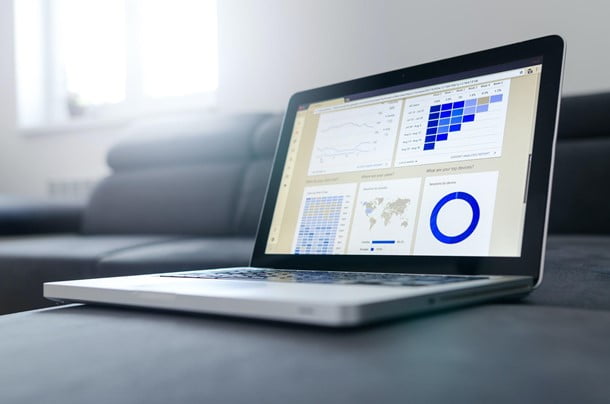AI technology advancements can help boost the economy.
The arrival of the novel coronavirus caused severe economic consequences. As we attempted to protect workers and consumers, many places of business were closed and jobs were lost. Still the virus spread.
The pandemic has led to increased discussion about the growing use of artificial intelligence (AI) and its place in the economy. Could AI be an essential part of economic recovery? Could advancements in AI technologies stimulate growth?
As we begin the process of restoring economic security while protecting human lives, artificial intelligence technologies are proving their worth in hard-hit sectors of the economy.
The Role of AI in Economic Recovery
Many fear the rise of AI, as these technologies have a tendency to displace human jobs through automation. However, AI technology also has the capacity to increase productivity and therefore profit margins, especially for companies that have to keep their human workers and customers safe via shutdowns. Since increased productivity almost always leads to expansion , this may just be the step in the right direction for economic recovery.
In nearly every industry, advancements in AI have enabled the kinds of growth and innovations necessary for an economic recovery. We’ve seen these advancements clearly in the healthcare and shipping industries that in the face of mass illness and quarantine have been more essential than ever.
Here’s how AI advancements have been shaping these essential industries and spurring economic recovery.
AI Technology in Healthcare
AI is transforming the future of the healthcare industry in everything from patient data management to the way patient care is conducted. AI allows for data analysis that could never have been possible, giving care providers the tools for predictive care and better diagnostics that lead to better care solutions. The availability of this data and vital data reporting through wearable devices and the Internet of Things (IoT) make for more accurate information and therefore treatment. Better care even in rural areas is now possible with the combination of these devices and telehealth services, powered often with the assistance of AI and chatbots.
Additionally, AI tech can be used to track the spread of and prevent COVID-19 through everything from surveillance techniques to data analysis. It can be used to help track the movements of individuals who test positive for the virus in order to warn others about potential contact through facial recognition and GPS tracking. Some businesses are even using thermal cameras to detect fevers.
Detection and limiting the spread of COVID-19 is also possible through data analytics and machine learning-enabled by AI. Artificial intelligence can comb through amounts of data no human could analyze, picking out patterns and predicting others that inform the spread of the virus and allow businesses and consumers alike to make informed decisions that help them protect themselves and employees while making the best choices for economic recovery.
Artificial intelligence in the business of healthcare is saving lives and the time care providers spend on managerial processes, cyclically improving care solutions for everyone.
AI in Shipping and Delivery
Now more than ever, shipping and delivery are utilized on a massive scale. It isn’t safe for at-risk individuals to leave their homes, and with quarantines and shutdowns, online ordering is at an all-time high. This makes innovation in shipping, fleet management, and delivery vital, and AI is here to help.
AI tools are used to track assets as they move across the world, coordinate routes, and minimize the time it takes to deliver products to needy customers. This process integrated with the job of fleet managers and other administrative coordinators for the transportation of goods makes for a more streamlined process with much less stress. Since 79% of these operators believe there are better ways than traditional management in handling the tasks they oversee, AI integration is timely and perfect for this complicated industry.
Autonomous vehicles—cars, trucks, and drones that drive themselves to deliver goods—are also starting to be used in the shipping and delivery industry. As AI increasingly improves, more and more issues with integrating self-driving technologies are resolved, making broad use of this technology possible. In turn, more businesses are reducing costs and shortening the time it takes to transport goods. This raises profit margins, increasing funding for job-creating growth.
The ability to maintain growth even as workers are displaced by a pandemic can help companies reinvest into localities, bringing jobs back to the communities that need them through expansion. This is a fundamental part of the recovery that needs to happen as the United States and other countries around the world pull themselves out of the recessions caused by COVID-19.
The Future of AI Technology
Through its unique capabilities for maintaining growth while curbing the spread of the coronavirus, AI tech has the potential to solve the COVID-19 crisis and aid in economic recovery across the world. Already, these technologies are being advanced to the point in which sustainable growth is possible.
The advancements of AI in healthcare and commodity transportation reflect a broader world of innovations that cut costs to businesses while allowing individuals to conduct their own work from the safety of their homes. This is essential in the future of the economy, where more and more AI tools will be integrated alongside human beings to grow profits and reinvest back in a safe and increasingly remote workforce.
AI has the power to help sustainably grow the economy back to pre-pandemic levels and beyond. Despite the bias that often exists in using these technologies, artificial intelligence is here and ready to make our lives safer through better data analysis and increased productivity.





